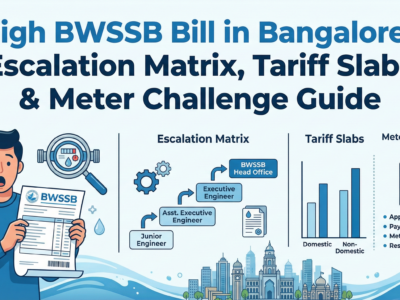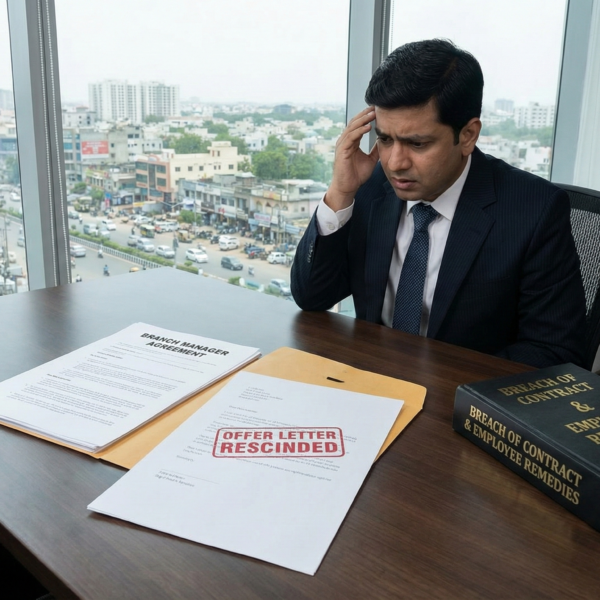The line between a consensual encounter and a life-altering criminal offense can be dangerously thin, especially when alcohol is involved. A critical question frequently arises within the Indian legal context: when does physical intimacy after drinking cross the legal threshold to become rape? This comprehensive analysis provides a definitive answer, grounded in the Indian Penal Code. We delve into the nuances of Section 375, examine landmark judicial interpretations on intoxicated consent, and provide a clear framework for understanding when an intoxicated “yes” is considered a legal and definitive “no.”
Legal Deep Dive
Intoxication, Consent, and the Law of Rape in India
A comprehensive analysis of when physical intimacy after alcohol consumption crosses the legal line into a criminal offense under Indian law.
Executive Summary
Under Indian law, physical intimacy with a person whose cognitive capacity is significantly impaired by alcohol constitutes rape. The law doesn't ban sex after drinking, but focuses on whether a person can give free, voluntary, and informed consent. This analysis explores the statutes, key court rulings, and evidentiary factors that define this critical legal boundary, affirming that sexual autonomy is not forfeited by voluntary intoxication.
1. The Statutory Architecture of Rape and Consent
The legal foundation for this issue is built upon Section 375 of the Indian Penal Code (IPC). Understanding its components is key to grasping the nuances of intoxicated consent.
The Act of Rape
Section 375 defines the specific physical acts, but crucially states they only become rape under certain circumstances, primarily the absence of valid consent.
The Standard of Consent
Explanation 2 defines consent as an "unequivocal voluntary agreement." This sets a high bar, requiring clear, unambiguous, and freely given willingness.
The Intoxication Proviso
Section 375 (Fifthly) is key: it invalidates consent if intoxication makes a person "unable to understand the nature and consequences" of the act.
"Consent means an unequivocal voluntary agreement... to participate in the specific sexual act."
— Explanation 2, Section 375, Indian Penal Code
The Evidentiary Shield: Section 114A
Supporting the IPC is Section 114A of the Indian Evidence Act, 1872. This powerful provision creates a legal presumption about the absence of consent. If a woman states in her evidence before the court that she did not consent, the court shall presume that she did not consent. This shifts the evidentiary burden onto the accused to prove that there was, in fact, valid, unequivocal, and voluntary consent. In cases of intoxication, this makes it exceedingly difficult for an accused to argue that he believed there was consent when the victim was clearly incapacitated.
2. The Judicial Interpretation of Intoxicated Consent
While statutes provide the rules, courts shape their real-world application. Key judgments have built a robust legal doctrine on what constitutes valid consent.
Key Judicial Pronouncements on Consent
Filter the landmark cases by court to see how the principles have been established and affirmed.
| Case | Court | Core Principle |
|---|---|---|
| Bombay High Court Ruling (2017) | Bombay High Court | An intoxicated woman is incapable of giving free, conscious consent. A drunk "yes" can be a legal "no." |
| Narender Kumar vs State (2012) | Supreme Court of India | Courts must be sensitive and examine "broader probabilities" in nuanced consent cases. |
| State of H.P. vs Mango Ram (2000) | Supreme Court of India | Consent requires intelligence and knowledge of the act's significance; establishes the cognitive test. |
| State of Punjab v. Gurmit Singh (1996) | Supreme Court of India | Sole, credible testimony of a prosecutrix is sufficient for conviction. Condemns victim-blaming. |
"A woman, when intoxicated, is incapable of giving a free and conscious consent to a sexual relationship... Not every 'Yes' is covered as valid consent."
— Justice Mridula Bhatkar, Bombay High Court (2017)
3. The Spectrum of Intoxication
The law focuses on the *effect* of intoxication, not its source. The critical question isn't just "was she drinking?" but "how drunk was she?"
The Consent Capacity Spectrum
The legal validity of consent diminishes as intoxication impairs cognitive function. The law draws a line where understanding is lost.
Sober & Aware
Valid Consent
Judgment Impaired
Questionable Consent
Incapacitated
Invalid Consent
Voluntary vs. Involuntary: The law makes no distinction. A woman's right to bodily autonomy is not forfeited because she chose to drink. The focus is on her capacity, not the reason for her intoxication.
How Drunk is "Too Drunk"? There's no fixed limit. The threshold is functional: the point at which a person is "unable to understand the nature and consequences" of the sexual act. This is determined on a case-by-case basis.
4. The Judicial Calculus: Factors in Determining Incapacity
Courts weigh multiple factors in a holistic assessment to determine if an individual was incapacitated at the time of the act.
The Scales of Evidence
Judges balance testimony, behavior, and forensic evidence to build a complete picture.
- Victim's Testimony: Her account of her mental state, memory, and physical control is primary evidence.
- Witness Observations: Testimony from friends, staff, or bystanders about the victim's behavior can provide crucial corroboration.
- Accused's Conduct: Exploitative actions, like taking a vulnerable person to a private place instead of ensuring their safety, are a powerful indicator of criminal intent.
A Shift from Outdated Precedents
Contemporary rulings have decisively moved away from older, regressive judgments where a woman's choice to drink was unfairly equated with sexual consent. The modern legal framework focuses on the legal validity of consent, not on moral judgments of the victim's character.
The Role of Digital and Circumstantial Evidence
In the digital age, courts increasingly rely on electronic and circumstantial evidence to build a comprehensive picture of the events leading up to, during, and after the incident. This evidence can corroborate testimony and reveal the true nature of the interaction.
Digital Footprints
- ➤Text Messages/Chats: Conversations before and after the act can indicate coercion, manipulation, or a lack of consent.
- ➤Call Records & Location Data: Can establish timelines and placements of the individuals involved.
- ➤Social Media Activity: Posts or messages might provide context or show the state of mind of the parties.
Circumstantial Factors
- ➤Post-Incident Conduct: The accused's behavior (e.g., fleeing, threatening the victim) or the victim's immediate actions (e.g., contacting a friend in distress) are highly relevant.
- ➤Isolation of the Victim: Evidence that the accused deliberately separated an intoxicated person from their friends can show predatory intent.
The Weight of Medical Evidence
A prompt Medico-Legal Examination (MLC) is crucial. While the absence of physical injury does not disprove rape, the MLC provides objective, scientific evidence that can be vital for prosecution.
- Confirmation of Intoxication: Blood/urine tests can scientifically establish the presence and level of alcohol or other intoxicants in the victim's system, corroborating their testimony of being incapacitated.
- Evidence of Non-Consensual Act: The examination can document injuries (bruises, scratches, tears) consistent with resistance or a non-consensual act, though their absence is not proof of consent. DNA evidence can also be collected.
- Important Note: Under Indian law, a delay in filing an FIR or undergoing a medical exam is not fatal to the prosecution's case, especially if a valid reason for the delay is provided. The victim's testimony remains paramount.
The Accused's Mindset: *Mens Rea* and Willful Blindness
For a conviction of rape, the prosecution must also establish the "guilty mind" or *mens rea* of the accused. The law examines what the accused knew, or what a reasonable person should have known, about the victim's capacity to consent.
Is "I thought she consented" a valid defense?
No, not if the belief is unreasonable. The defense of "mistake of fact" is not available if the accused was willfully blind to the victim's condition. The law asks: were there clear signs of incapacitation that a reasonable person would have noticed?
-
Invalid Defense: The accused's own voluntary intoxication is almost never a defense. Being drunk does not excuse the responsibility to ensure your partner is enthusiastically and soberly consenting.
-
The Legal Test: The court will assess if the accused took reasonable steps to ascertain consent. Ignoring slurred speech, stumbling, or vomiting are indicators of willful blindness, not a reasonable belief in consent.
Willful Blindness vs. Reasonable Belief
The law punishes those who ignore obvious signs of a person's vulnerability.
Ignoring Signs
Proceeding with sexual activity despite visible signs of severe intoxication.
Ascertaining Consent
Ensuring a partner is coherent, enthusiastic, and fully aware.
Deconstructing Misconceptions: Myths vs. Legal Realities
Social stigma and lack of legal clarity have fueled dangerous myths. Here’s how the law actually sees it.
MYTH: "If she willingly drank alcohol, she was 'asking for it' and consented to what followed."
LEGAL REALITY:
Consuming alcohol is not a blanket consent for sexual activity. The law protects a person's right to say no at any point, regardless of their prior choices. Bodily autonomy is non-negotiable.
MYTH: "If she didn't scream or physically fight back, she must have wanted it."
LEGAL REALITY:
The law recognizes that intoxication can cause a "freeze" response or physical inability to resist. Consent must be affirmative and unequivocal; the absence of a "no" is not a "yes," especially from someone incapacitated.
MYTH: "It's not rape if the man was also drunk; he wasn't in control of his actions."
LEGAL REALITY:
In India, voluntary intoxication is not a valid legal defense for committing rape. The onus is on every individual, drunk or sober, to ensure they have the enthusiastic consent of their partner.
A Comparative Legal Landscape: India vs. The World
India's legal stance on intoxicated consent aligns with a global trend towards prioritizing victim autonomy and requiring affirmative consent.
| Jurisdiction | Legal Standard | Key Feature |
|---|---|---|
| India | "Unequivocal voluntary agreement" (IPC S. 375) | Consent is void if intoxication prevents understanding of the act. Strong presumption against non-consent (Evidence Act S. 114A). |
| United Kingdom | "Freedom and capacity to consent" (Sexual Offences Act 2003) | Focuses on whether the person had the cognitive capacity to make a choice. A person is presumed not to have consented if unconscious or incapacitated. |
| USA (e.g., California) | "Affirmative Consent" ('Yes Means Yes' laws) | Consent must be an affirmative, conscious, and voluntary agreement. Silence or lack of resistance does not imply consent. A person who is incapacitated cannot consent. |
Frequently Asked Questions (FAQ)
A prior relationship does not imply perpetual consent. The law is clear: consent must be given for every specific sexual act. Past intimacy is not a defense against a charge of rape if consent was absent for the incident in question, especially if one person was incapacitated.
Fragmented memory is a common and medically recognized consequence of intoxication and trauma. The inability to recall every detail does not invalidate your testimony. What matters legally is whether you remember the lack of consent and your state of incapacitation. Your credible testimony about what you *do* remember is powerful evidence.
There is no statute of limitations for filing a rape case in India. The law recognizes that victims may take time to process trauma, overcome fear, or escape a coercive environment before they are ready to report. While prompt reporting is beneficial for evidence collection, a delay can be explained and does not automatically nullify the case.
Navigating the Aftermath: Practical Guidance
What To Do If You Are a Victim
If you or someone you know has been sexually assaulted, taking these steps can be crucial for both safety and legal recourse. This is not legal advice, but a general guide.
- Get to a Safe Place: Your immediate safety is the number one priority. Reach out to a trusted friend, family member, or the police.
- Preserve Evidence: Do not shower, bathe, change clothes, or brush your teeth if possible. This helps preserve crucial physical evidence for the investigation.
- Seek Medical Attention: Go to a hospital for a medico-legal examination. This is vital for your health (to check for injuries, STIs) and for collecting evidence, even if you are undecided about pressing charges.
- Report to the Police: You can file a First Information Report (FIR) at any police station. A female officer should be available to take your statement. You have the right to a copy of the FIR for free.
- Contact Support Services: Reach out to a lawyer, a sexual assault crisis center, or a mental health professional. Organizations like the National Commission for Women (NCW) can provide guidance and support.
Demystifying the Legal Journey
Filing FIR
Report at any police station.
Investigation
Police collect evidence & statements.
Chargesheet
Filed in court if evidence exists.
Trial & Judgment
Court hears evidence and decides.
Support & Helpline Resources
You are not alone. Confidential help is available.
Women Helpline (All India)
1091 / 181
National Commission for Women
011-26942369
Police Emergency
100 / 112
First Information Report (FIR) - Template/Guide
This template is a guide to help structure the information for an FIR. It is crucial to provide a clear, factual, and chronological account. This is not a substitute for legal advice. Present this information to the police officer who will then write it in the official format.
5. Synthesis and Conclusive Legal Position
The Unwavering Conclusion
The legal position in India is unequivocal: physical intimacy with a person who has consumed alcohol can, and frequently does, amount to rape. The law is not concerned with the mere presence of alcohol but its impact on an individual's cognitive ability to consent.
When Consent Becomes Void: Consent is legally void at the point where intoxication deprives a person of the capacity to give an "unequivocal voluntary agreement," as defined in Section 375. If a person is unable to understand the nature and consequences of the sexual act, any apparent "yes" is meaningless in the eyes of the law.
Burden of Proof: While the prosecution bears the initial burden, Section 114A of the Indian Evidence Act creates a powerful presumption. If a woman testifies she did not consent, the court shall presume she did not. This places a high bar on the accused to prove that valid consent was given, especially when incapacitation is claimed.
Ultimately, the law robustly protects the sexual autonomy and bodily integrity of every individual. This is a fundamental right that cannot be waived, forfeited, or diminished by the choice to consume alcohol.









